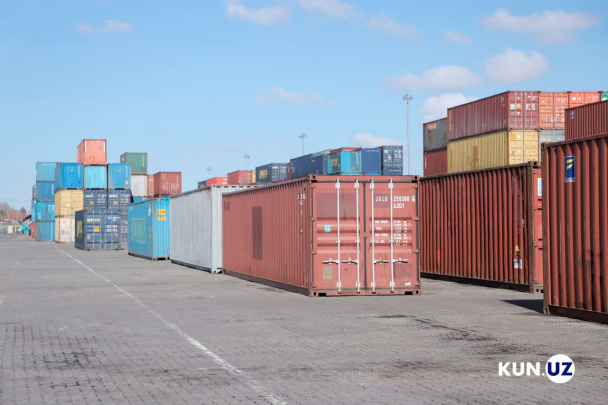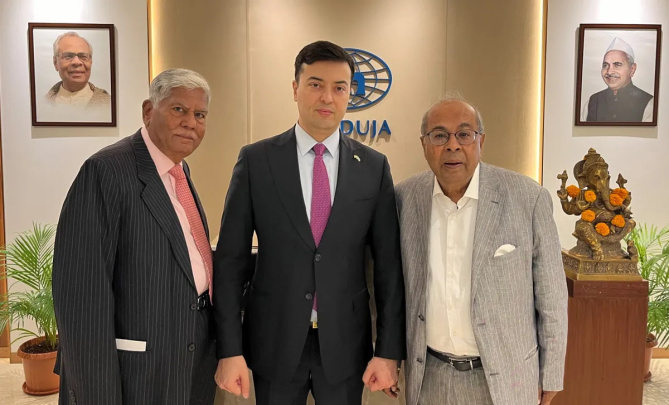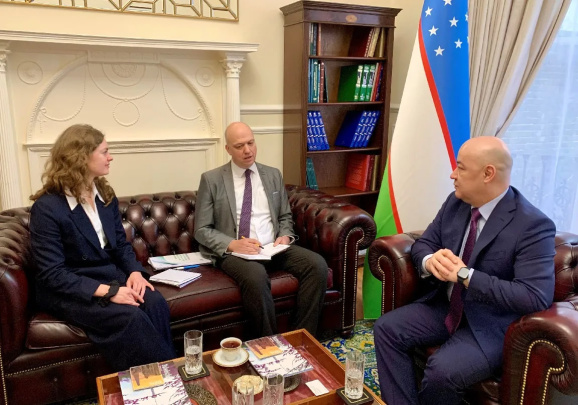
Overcoming power shortages is vital to increasing business productivity and growth, creating jobs, and alleviating poverty. As one of the biggest energy markets in Central Asia – with the current generating capacity at 12.9 gigawatts – Uzbekistan is well-positioned to address the challenges of the sector and ensure the country’s energy security.
Uzbekistan’s energy intensity declined by about 45 percent over the last 15 years. However, the nation remains one of the most energy-intensive countries in the world – 35 percent higher than that of neighboring Kazakhstan and three times that of Germany.
The good news is that Uzbekistan’s significant renewable energy resource potential – hydropower, solar, and wind – can cater to the country’s growing energy needs and support the transition to a clean energy economy. Yet renewable energy generation remains low, except for hydropower. This needs to change. Renewable energy can help reduce the country’s heavy reliance on natural gas – 85 percent of total electricity. Developing a renewable energy sector will also offer new business opportunities, while helping the government of Uzbekistan fulfill its commitment to decrease greenhouse-gas emissions per unit of GDP by 10 percent by 2030 from 2010 levels.
Two waves of COVID-19 lockdown measures hampered economic activity in Uzbekistan from March to August. As a result, GDP growth decelerated to 0.2 percent in the first half of 2020 from 4.1 percent in the first quarter. Removing infrastructure bottlenecks and introducing renewable energy solutions is crucial to boosting the nation’s resilience, freeing up resources for the delivery of healthcare and public services, and stimulating economic recovery.
The government has started planning for the diversification of the electricity generation mix. It is focused on increasing the share of renewables in power production up to 25 percent of total electricity generation by 2030. To achieve this, reforms should aim at removing three kinds of barriers to energy and resource efficiency – regulatory and institutional, financial, and technical. In March 2019, the government initiated an ambitious, broad reform plan, which envisions a three-pronged approach – unbundling of the vertically integrated system, tariff reform, and attracting private sector investments in generation.
Supported by the World Bank Group, key initial steps of the energy sector reforms have already been taken through the establishment of the Ministry of Energy, unbundling of the vertically-integrated electricity utility (Uzbekenergo) and establishment of a Public-Private Partnership (PPP) Development Agency. The key step to opening up the sector involves restructuring the vertically integrated state-owned electricity utility into three separate entities for generation, distribution, and transmission. The idea is to support the expansion of the market for energy-efficient equipment and technologies and facilitate increased private sector investment through these reforms.
Road Ahead
Uzbekistan requires significant infrastructure investments to meet future demand for electricity. Further, adding new power generation is likely to cost $14.7 billion. While this will require mobilization of all possible sources of funding, the public and private sector – as well as local agencies and international organizations – will need to work together through innovative business models.
To address this financing gap, the government is instituting a robust regulatory and PPP framework to attract investors. Bringing in the private sector through PPPs allows the government to share the responsibility of financing investments in the country. These partnerships can help Uzbekistan leverage the expertise and efficiency of the private sector, raise capital, and spur development. Effective PPPs are particularly important for financing infrastructure projects, including power projects, which are traditionally known for their significant up-front, fixed costs, and long asset life. PPPs can also help expand key services and complement a traditional public-sector approach with various forms of private-sector participation.
The World Bank Group, through IFC’s advisory services, helped set up Uzbekistan’s first-ever competitive energy PPP under its Scaling Solar initiative, a ‘one-stop-shop’ program for governments to rapidly mobilize privately funded grid-connected solar projects at competitive tariffs. In October 2019, this open, transparent, and competitive PPP tender yielded one of the lowest solar tariffs in emerging markets – 2.7 cents per kilowatt-hour. The project will ultimately add 100 megawatts of electricity, enough to bring light and power to more than 31,000 households. It will mobilize nearly $110 million in private capital financing, supplying an incremental 270-gigawatt hours per year of renewable electricity to the grid and avoiding greenhouse-gas emissions of 156,000 metric tons per year. Delivering power is essential to contributing to the resilience of the country, keeping the most critical infrastructure operating safely and securely, and making sure homes and businesses are receiving the energy they need.
The electricity generated from the new solar plant in the Navoi region will be sold over a period of 25 years to the newly established Uzbek state-owned power utility, National Electric Grid of Uzbekistan. Soon after, the government of Uzbekistan launched another tender for an additional PPP for 400 MW of solar power in February 2020.
This is timely, with Uzbekistan aiming to develop up to 5 gigawatts of solar power by 2030. The government is also looking at new technologies – for example, short duration-battery storage – to expand the reach of clean energy. This will diversify the country’s energy mix through the deployment of clean energy resources and leveraging private and commercial financing in Uzbekistan.
This project shows that Uzbekistan can find a sustainable pathway to clean energy transition, accelerating the deployment of renewable energy resources through PPPs that balance the needs of the public and private sector. It’s a promising sign that Uzbekistan can realize the transition to a low-carbon, resource-efficient economy.
Georgina Baker is Vice President for Latin America and the Caribbean, and Europe and Central Asia for the International Finance Corporation, a member of the World Bank Group.





